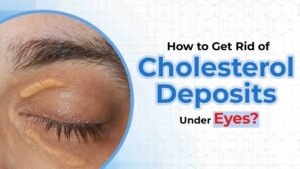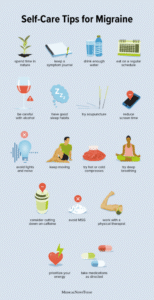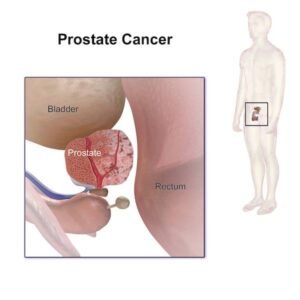Ototoxic Medications That May Cause Hearing Loss
Ototoxic Medications and Their Impact on Hearing Loss
Understanding Ototoxicity: A Risk to Your Hearing
Ototoxicity refers to the harmful effects that certain medications can have on the inner ear, potentially leading to hearing loss or balance disorders. These effects can either be temporary or permanent. While medications are prescribed for their proven benefits, it’s important to be aware of the potential side effects, especially when it comes to hearing loss. If you experience any disturbances in your hearing or balance, your healthcare provider may advise discontinuing certain drugs to prevent further complications.
Medications Associated with Permanent Hearing Loss
Hearing loss is most commonly associated with six categories of medications. Some drugs have a higher potential for causing long-term hearing loss, including:
-
Aminoglycoside Antibiotics
-
Platinum-Based Chemotherapy Drugs
Medications Linked to Temporary Hearing Loss
Other drugs may lead to temporary hearing loss, including:
-
Loop Diuretics
-
Quinine
-
Salicylates
-
Vinca Alkaloids
In addition to affecting hearing, many of these medications can also harm the kidneys, which is why regular monitoring of kidney function is necessary. If you notice any changes in your hearing, it’s crucial to consult your healthcare provider immediately.
Risk Factors for Ototoxicity
While the likelihood of experiencing ototoxicity varies, both temporary and permanent effects are well-documented. Certain medications, particularly some antibiotics, require careful blood monitoring, known as “height and trough” tests. The height refers to the peak concentration of the drug in the blood, while the trough represents the lowest point. Although blood monitoring can help optimize the medication’s therapeutic effect, it does not guarantee prevention of ototoxicity. Other contributing factors include:
-
Dose and duration of treatment
-
Kidney failure
-
Concurrent use of other ototoxic medications
-
Genetic predisposition to ototoxicity
Symptoms of Ototoxicity
Symptoms of ototoxicity vary depending on which part of the inner ear is affected. Ototoxic damage can impact the cochlea (resulting in cochleotoxicity) or the vestibular system (resulting in vestibulotoxicity). In both cases, the damage typically involves sensory cells, leading to:
-
Cochleotoxicity: Hearing impairment, ranging from mild tinnitus to severe hearing loss. The extent of hearing loss corresponds to the severity of the cochlear damage. It can affect one or both ears.
-
Vestibulotoxicity: Balance issues, including vertigo, nausea, and difficulty walking. If damage affects both ears, you may experience symptoms such as imbalance, blurred vision, fatigue, and difficulty walking in the dark.
Medications That Can Cause Ototoxicity
Several well-known medications are associated with ototoxicity. These include:
-
Aminoglycoside Antibiotics: Used for treating bloodstream and urinary tract infections, as well as tuberculosis. Common examples include gentamicin, tobramycin, and streptomycin. These drugs have a significant risk of causing both hearing and balance issues.
-
Loop Diuretics: These drugs increase urine production and are used in treating conditions like congestive heart failure and kidney disease. While the risk of ototoxicity is relatively low, it can occur in some patients, especially at high doses. Examples include furosemide (Lasix) and bumetanide (Bumex).
-
Platinum-Based Chemotherapy Drugs: Cisplatin and carboplatin, used in the treatment of various cancers, are highly ototoxic. They are associated with hearing loss, particularly in patients receiving high doses.
-
Quinine: Commonly used for treating malaria and leg cramps, quinine can cause hearing loss, particularly at higher doses, and may lead to a condition called cinchonism, characterized by deafness, vertigo, and tinnitus.
-
Salicylates: Aspirin and similar drugs, when taken in large doses, can cause hearing loss, often in the range of 30 decibels (similar to a whisper). However, even at lower doses, salicylates can lead to mild tinnitus, particularly in younger individuals.
-
Vinca Alkaloids: Drugs like vincristine, used in cancer treatment, can cause hearing loss, especially when combined with aminoglycoside antibiotics.
Diagnosing Ototoxicity and Hearing Loss
To detect potential hearing loss from ototoxicity, it’s important to undergo a baseline audiogram before starting treatment with any medications that could affect hearing. Your healthcare provider will then determine whether you need regular hearing tests throughout your treatment or a simple self-examination of your hearing. Although this cannot prevent hearing loss, it allows for early detection of any issues.
Treatment and Management of Ototoxicity
Currently, there are no treatments available to reverse permanent damage caused by ototoxicity. The most important step is early diagnosis and stopping the ototoxic medication as soon as possible. If hearing loss is mild, hearing aids may be recommended. For more severe cases, especially if both ears are affected, cochlear implants might be suggested. Rehabilitation for balance disorders may also be necessary.
Key Takeaways
-
Ototoxicity can result in hearing loss or balance issues, potentially caused by medications like antibiotics, chemotherapy drugs, and diuretics.
-
Early detection through audiograms is crucial for managing ototoxicity.
-
There is no cure for permanent damage, but hearing aids or cochlear implants can help restore function.
-
Always consult your healthcare provider if you notice any changes in your hearing or balance while taking medication.
By being aware of the medications that could affect your hearing, you can take proactive steps to protect your auditory health while receiving necessary treatments.










